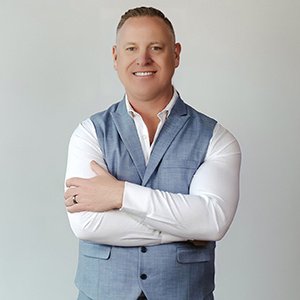Join Ron and Ed as we dive deep into the dynamic world of subscription business models. With the landscape constantly evolving, we'll bring you the latest insights and happenings that are shaping the future of subscriptions. Whether it's the introduction of new technologies, shifts in consumer preferences, or innovative strategies companies are adopting to retain subscribers, we've got it covered. Stay ahead of the curve and understand what these changes mean for businesses and consumers alike. Don't miss out on this insightful update – tune in to stay informed!
Use these show notes to follow along with the audio:
Segment one
“[The subscription economy] has become our new normal.” —Tien Tzuo
“Is the Subscription Economy over?” This is what Tien Tzuo asked in his most recent Subscribed newsletter https://www.linkedin.com/pulse/subscription-economy-over-tien-tzuo-w6vwe/?trackingId=16QSer9BSGylg9hNp4BoOg%3D%3D
Today I learned: Of the 10.36 million subscribers to The NY Times, 9.7 million are digital-only
Of the companies expanding their understanding of subscription, there are 3 strategies in common: 1) monetization is bigger than pricing, 2) strategies are living and evolving, and 3) they address the root questions
Most of segment one was based on the most recent post from Tien Tzuo (former guest and CEO of Zuora) at this link: https://www.zuora.com/subscribed/is-the-subscription-economy-over/
Segment two
For the second segment, Ron and Ed are talking about the article titled, “Follow the dots: Why a customer-centric world requires a demand-led strategy” - More here: https://www.zuora.com/subscribed/why-a-customer-centric-world-requires-a-demand-led-strategy/
“The consumer isn't a moron; She is your wife” —David Ogilvy
1/2 How big does a business or personal transformation really need to be? Don’t over-exaggerate it in your mind. It’s doesn’t need to be a complete transformation. Take the small steps first.
2/2 For example, with a tax practice customer: “I used to think of you as someone who did my taxes. Now I see you can also provide guidance and insight to help with better planning.”
Transformations that are not MAJOR transformations but are still important….what are they called? You are HONING (think of sharpening a knife blade)
...many businesses claim today to be customer-centric, they still operate like they [...] can create a product, package it up, and sell it in the fashion most convenient for them — and expect consumers to eat it up. https://bit.ly/3TXSoQX
Segment three
All of Tien Tzou’s Subscribed newsletter articles can be found at this link https://www.zuora.com/subscribed
Robbie Kellman Baxter (also a TSOE guest) possibly said it best: “A lot of boards and executives are now saying, ‘let’s get some subscription revenue,’ without thinking about why that would be good for the customer.” More here: https://www.zuora.com/subscribed/why-a-customer-centric-world-requires-a-demand-led-strategy/
Regarding subscription: “We’re in a critical moment. There’s no time for frauds. This market is too competitive for any company posing as anything but one with a customer-centric and future-proof approach. This approach is not an option.” More here https://www.zuora.com/subscribed/why-a-customer-centric-world-requires-a-demand-led-strategy/
Is there room in the market for a high end, subscription only restaurant? Ron mentioned the French Laundry as a possibility but ultimately you are paying for access (which is the point!)
WFH is now Working From Helm — Virgin Voyages is now offering summer season passes for cruise ships https://www.virginvoyages.com/l/one-month-summer-mediterranean-cruise
Cruising not your thing? Instead, why don’t you subscribe to skiing with the IKON Pass? https://www.ikonpass.com/
Segment four
Where can you find more work from Joe Pine and his book The Experience Economy? He’s working on his next book and is sharing his work in progress on Substack https://transformationsbook.substack.com/
Rate this podcast at RateThisPodcast.com/TSOE. If you write a review we are happy to read it on the air - good, bad, or indifferent
Geraldine Carter — a show sponsor and listener — is working on a new book called Down to 40 Hours. Watch her website closely for more info https://geraldinecarter.com/
Bonus Content is Available As Well
Did you know that each week after our live show, Ron and Ed take to the microphone for a bonus show? Typically, this bonus show is an extension of the live show topic (sometimes even with the same guest) and a few other pieces of news, current events, or things that have caught our attention.
Click the “FANATIC” image to learn more about pricing and member benefits.












